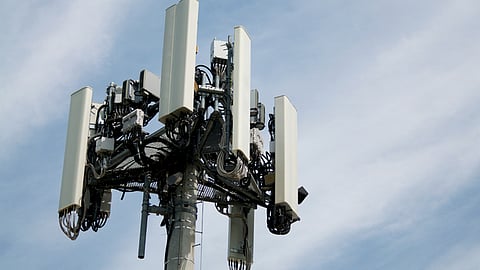

The introduction of 4G was a great step forward in enabling people to live connected lives. Innovators of today owe their existence to it. 5G, however, will multiply all of these aspects exponentially.
Some people see 5G as just an upgraded version of older network generation upgrades. However, if you dive deeper into its understanding, you will see how broad its application is in this decade.
Businesses today are competing to get the most advanced and fastest 5G networks. Experts anticipate the many revolutionary innovations that will be built on top of 5G to make it the most competitive technology in the world.
It will still take time for wireless customers to see the major benefits that 5G could one day bring. In addition to smart cities, remote surgeries, and automated factories, the network is essential to enabling new technologies.
There are several differences between 4G and 5G networks, which will be discussed in this article. After reading this, you will understand why 5G is more than just a technology upgrade.
Pro Tip: If you are looking for a great internet speed with mobile 5G, Spectrum might be a great choice. The rates are pretty affordable and there are no data caps to worry about data limits.
With that, let us get to the key differences between 4G and 5G.
This is an important feature of the next-generation network that is eagerly awaited. The next-generation network will offer speeds that are 100 times faster than 4G.
A two-hour movie could be downloaded in less than 10 seconds at such speeds (no more panic on the tarmac as you download your in-flight entertainment).
Consumers will be able to stream movies and download apps with fast speeds, but they'll be needed in a multitude of other areas as well.
Manufacturers talk about putting video cameras throughout factories so they can analyze large amounts of video footage in real-time to monitor the quality of their products.
High-band spectrum is a super-high-frequency airwave that most 5G networks use to deliver these speeds. Data is transmitted faster with the higher frequencies than with the lower frequencies in 4G.
The high-band spectrum is not very efficient and is not able to penetrate walls, windows, lampposts, and other solid surfaces very easily. This isn't very convenient when we want to keep working our tiny computers as we walk from the subway station, across the street, and into the office.
Those challenges have led to wireless carriers installing thousands of small on light poles, towers, walls, and often in close vicinity to one another. Because of this, most carriers are rolling out 5G city by city - for the network to function, the city must have plenty of small cells.
In addition, many buildings will be equipped with their own 5G cell sites to ensure the network works. Wow! That does sound cool!
There is nothing more frustrating than seeing a "spinning wheel of death" when you try to open a webpage or watch an Instagram video in an airport when thousands of people are gathered in a relatively small area.
Congestion can result if there are too many devices trying to use the network at the same time. Due to a large number of devices, the network infrastructure cannot handle the data traffic, resulting in slower download speeds and longer lag times.
5G technology is expected to solve this issue and more. A significantly larger network capacity is expected than that of 4G.
In addition to a better connection for everyone's phones, you will also be able to post about your big game experience on social media more easily. Many, many more devices can be connected to the network as a result.
There are more lanes for more cars to drive on the 5G network, which is like a new and improved freeway. In addition to increased bandwidth, this element of the update would make it possible to connect toothbrushes, kitchen appliances, street lamps, and more for the era of the "internet of things."
It is important to note that there is a small but substantial difference between speed and latency, which is the amount of time it takes for devices to communicate with one another or with the server they are receiving information.
You can measure the speed of your phone by the time it takes to download a webpage. A friend's phone registers that a new message has been received after receiving a text message from you.
This time is called latency. Latency is indeed measured in milliseconds, but when sending and receiving billions of bits of data per second, such as video - or data from a self-driving car - the milliseconds add up.
5G will virtually eliminate latencies that exist with 4G. The new technology will be helpful for innovations like remote real-time gaming - allowing people to play the same game from different parts of the world using Internet-connected devices at the same time, no matter where they are.
Self-driving cars, for example, will be unable to navigate by themselves without this information, since they need to send signals about their surroundings to a cloud-based computer, which analyzes the situation and returns the care instructions.
Surely the wonders of 4G and 5G are amazing. There are differences between the two, but both have their own benefits. We hope you are now clear about the key differences.
That is all for this post. If you have anything to add to this post, you are more than welcome to do so. Leave your questions and comments in the section below.
5G vs 4G: What's the Difference and Why it Matters? (prune.co.in)
5G vs 4G: What is the difference? - Ericsson
4G Vs. 5G: Key Differences Between the Network Generations (businessinsider.com)